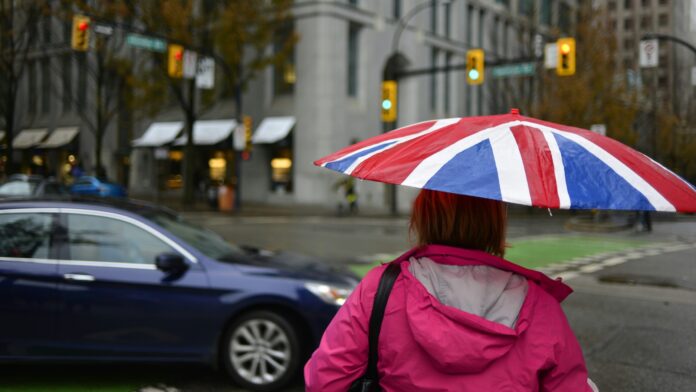British Columbia could be in for a wet, rainy fall season as forecasters note an increased likelihood of a La Niña weather system developing this year.
“If the sea surface temperatures are negative at the equator, we consider that a La Niña year,” explains meteorologist Derek Lee with Environment and Climate Change Canada.
He said a strong La Niña can influence winter weather patterns in North America.
“For British Columbia, we do kind of correlate it to cooler winters and an increased chance to see more snowfall, both at the surface and in the mountains,” said Lee.
The Climate Prediction Center at the U.S. National Oceanic and Atmospheric Administration issued a La Niña watch on Sept. 11, reporting a 71 per cent chance of the event occurring from October to December this year.
“The key takeaway is that for fall weather patterns, it’s unsure that we’ll see any impacts from La Niña because the correlation is much better in the winter months than the fall months,” said Lee.
He said a La Niña this winter could mean longer duration and stronger cold snaps, and the possibility of more snowfall.
Lee said without La Niña, the seasonal forecast for B.C. over the next few months is showing above normal temperatures and it could be wetter than normal.

B.C. Hydro is encouraging residents to prepare for the possibility of an active storm season. It said an ongoing drought in B.C. has also increased the risk of tree branches breaking off and downing power lines.
“In 2024, over 1.4 million BC Hydro customers faced weather-related outages, the highest on record,” said BC Hydro spokesperson Susie Rieder in a statement.
“Even with the unprecedented surge, our crews responded faster than ever. But with La Niña expected to intensify storm activity this fall and winter – on top of the effects of multi-year drought – it’s more important than ever for British Columbians to be prepared.”
B.C. Hydro said a survey conducted in September found a generational divide in storm preparedness.
The utility said younger adults are the least ready for power outages. The survey found more than half of 18 to 34 year olds did not have an emergency kit prepared in case of power outages.
That compared to the majority of those aged 35 to 54 and nearly half of those over 55 who have an emergency kit.
B.C. Hydro said cost and uncertainty about how to start are the most common reasons younger adults cite for not preparing.
The B.C. government’s website has a guide on how to prepare for emergencies, including outages.






